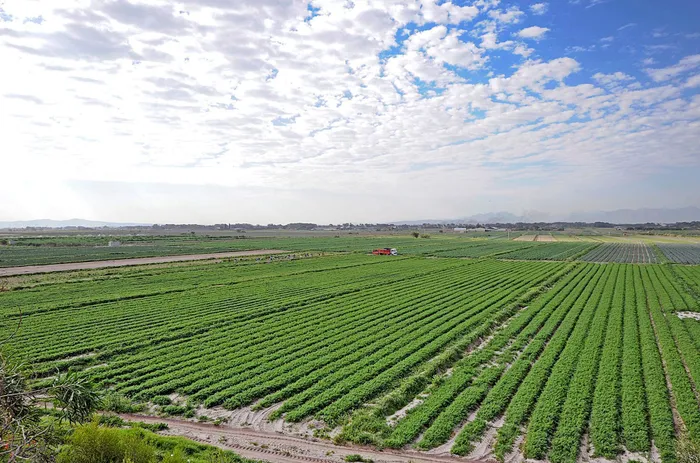Saai's Farmer Input Cost Index Reveals 9% Farm-Level Inflation in South Africa

The Southern African Agri Initiative (Saai) released the Farmer Input Cost Index (FICI), which indicated that farm-level inflation averaged 9% over the past five years.
Image: Leon Lestrade/African News Agency (ANA)
The Southern African Agri Initiative (Saai) released the Farmer Input Cost Index (FICI), which indicated that farm-level inflation averaged 9% over the past five years. Saai said that the FICI is an industry first for South Africa and is compiled using several reputable data sources and a methodology that is informed by consulting with farmers.
Francois Rossouw, CEO of Saai, said that the FICI is a way to accurately estimate the true inflation pressure faced by South African farmers. “Farmers are eager for greater accuracy in all things, and a truly independent indicator tailored to their reality fills a need to compare and benchmark your own operations.”
Rossouw added that the July 2025 FICI has averaged over 9.1% since April 2020. “Whilst the annual inflation rate decelerated in late 2024, the impact of double-digit input cost inflation in 2021 and 2022 still impacts farmers. By comparison, official food consumer inflation increased by 4.5% and official agricultural producer inflation of 9.2% produced by StatsSA.”
Rossouw said that official estimates are useful, but we prefer to have an independent assessment of farmer input costs. “The FICI clearly shows that farmers have been facing higher cumulative input cost inflation than what official estimates would suggest.”
Rossouw added that the biggest cost driver for farm inflation has been fertilizer costs, which increased by over 20% on an annual average over the past five years, followed by electricity at almost 13% per year. “The latter indicates that addressing government-related inflation and service delivery problems is a priority that requires urgent attention.”
Rossouw said that they hope to work with government and other stakeholders; farm-level inflation literally feeds into the cost of food for all South Africans. “It is in all our interest that farm-level inflation, particularly the cost drivers behind it, are taken seriously.”
Wandile Sihlobo, Chief Economist at the Agricultural Business Chamber of South Africa, said earlier this month that the Agbiz/IDC Agribusiness Confidence Index (ACI) fell for a second consecutive quarter by 2 points to 63 in Q3 2025. “Most respondents highlighted the adverse effects of foot-and-mouth disease and trade frictions with the U.S. as their primary concerns.”
“Moreover, some noted the long-running challenges, such as poor service delivery by municipalities and slow progress in releasing government land to beneficiaries with title deeds to stimulate agricultural expansion, as limiting factors,” added Sihlobo.
Sihlobo added that despite the slight decline, the current level of the ACI implies that South African agribusinesses remain optimistic about business conditions in the country. “The favourable 2024-25 summer rains and improvements at the ports, which have enabled exports with minimal interruptions, are among the positives. The winter crop season is also looking positive for the 2025-26 harvest. This survey was conducted during the last two weeks of August, covering agribusinesses operating in all agricultural subsectors nationwide.”
Sihlobo said that overall, the ACI results for Q3 2025 show that the mood remains upbeat in the sector, although several challenges confront some subsectors. “What we take from these results is that the recovery of South Africa's farming sector will likely be uneven in 2025, with the livestock subsector under pressure, while other subsectors seem likely to grow. Moreover, the dominance of geopolitical concerns in respondents' views illustrates the strong dependence of South Africa's agricultural sector on export markets and the need to diversify these markets.”
BUSINESS REPORT
https://businessreport.co.za/